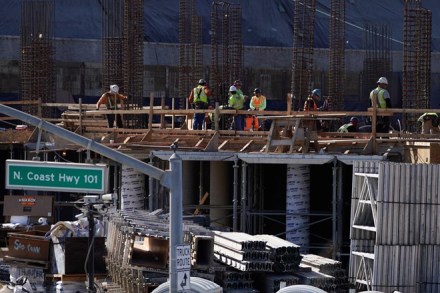US productivity rose at a 10.1 per cent rate in the second quarter as the number of hours worked declined by the largest amount since the government started compiling the data more than 70 years ago. The Labor Department said Thursday that hours worked fell by 42.9 per cent, contributing to a 37.1 per cent decline in output as the coronavirus pandemic ripped through nearly every corner of the U.S. economy.
The decline in output was also the biggest drop-off since the government began tracking the data in 1947. In its second and final estimate for the second quarter, the government said labor costs rose 9 per cent, slightly less than last month’s first estimate of 12.2. per cent.
The original estimate for productivity was a 7.3 per cent increase. Productivity the amount of output per hour of work is the key to rising living standards, and the slow pace of growth in recent years has contributed to sluggish wage increases.
Productivity mostly lagged during the record long 11-year expansion that followed the Great Recession, confounding economists. From 2000 to 2007, the year the Great Recession began, annual productivity gains averaged 2.7 per cent. But since then, productivity has slowed to about half that pace, rising at an average annual rate of 1.4 per cent from 2007 through 2019.
That rate rose to 1.9 per cent in 2019 stoking some optimism for a resurgence in productivity, but the coronavirus pandemic hit in the first quarter of 2020, sinking the economy and dragging down virtually every economic indicator.
Last week, the government reported an astonishing 31.7 per cent plunge in second-quarter gross domestic product, the value of goods the country produced in the April-June quarter. It was the sharpest such drop on records dating to 1947, and almost entirely related to the fallout from the coronavirus pandemic, which has shuttered most businesses temporarily and many permanently, sending millions of workers to the unemployment rolls.
The Trump Administration has predicted a third-quarter economic rebound, but many economists think that the economy can’t fully recover until the virus has been tamed. Economists have warned that the economic disruptions caused by the coronavirus would likely hinder productivity in coming quarters.
